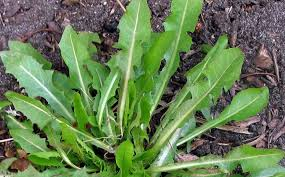Current Affairs
Al-Molaytah: Food, Beverage And Medicine All In One Parcel
19 November, 2017
KHARTOUM (Sudanow) - The use of al-molaytah herb varies from one region to another in Sudan. But all Sudanese agree on the consumption of al-molaytah as a food and a medicine for certain ailments.
Commonly known by its scientific name “chicorium intybus”, al-molaytah grows wild among crops and grasses in all sorts of soil, preferably in valleys. In some other parts of the World al-molaytah is known by the name dandelion and is sold at high prices in quality supermarkets in the Americas, Europe and the Gulf Region.
As a food al-molytah is one of the highest source of vitamin-A and K among culinary herbs and is rich in many other vital vitamins including folic acid, riboflavin, pyridoxine, niacin, vitamin-E and vitamin-C (natural antioxidant). It is an ideal source of minerals like potassium, calcium, manganese, iron, and magnesium as well as notable nutrients.
Al-molaytah first originated in the Netherlands according to horticulture expert, Engineer Intisar Ja’afar Suleiman. Ms. Suleiman said al-molytah is a perennial very hardy plant. Its seeds had found their way to Sudan a long time ago just by chance among other seeds imported from that European country. The plant then spread naturally in Sudan, like what any other parasites may do. Al-mollaytah blossoms in two years, producing a purple rose.

In some parts of Sudan al-molaytah is cooked like molokhia, okra and purslane and other vegetables. But al-molaytah is widely used in Sudan as a salad where it is cut into small pieces and mixed with onion (or tomato), peanut paste and spices and is taken as an appetizer. These additions are meant to raise al-molaytah’s nutritional value and reduce its bitter taste.
The herb is an important food for farming families during the rainy season. It is also abundant throughout the year in irrigated farms but it is less bitter.
Medically, the leaves and roots of al-Molaytah (either fresh or boiled to be used as a drink) was found to be useful in the treatment of some ailments. It was found to enhance the faculties of the digestive system, ease digestion, cure stomach burns and ulcers and anemia. It was found useful in heart diseases and in the reduction of blood sugar in diabetics. It also reduces harmful cholesterol in the blood. It stems the growth of cancerous cells and guards against the enlargement of the liver. It also has established role in the treatment of Alzheimer's patients, eczema, fever, constipation and arthritics. It is useful for bone strengthening and helps in weight loss as it boosts the feeling of satiety, thus reducing the desire for food.
It is said that the Dutch were the first to mix dry molaytah roots with coffee and take it as a stomach booster. The French use its roots to produce a drink, thought to be as excellent as coffee.
However, according to Ms. Sulieman, al-molayta has some slight harms. The existence of molaytah in the farms reduces crop yields because it competes with the crops for water. Pregnant women are advised against the consumption of molaytah as it was found to cause abortion.
E N D
YH/AS
Post your comments
Photo of the Week
Everybody alive today came from one African country (The Independent) Ariana Baio Khartoum, Jan.1 (Sudanow)-It is well known that all humans alive today can be traced back to a common ancestor but a study may have found where that ancestor originates. Researchers at the University of Oxford’s Big Data Institute mapped the entirety of genetic relationships among humans t...
MoreNew media
The Poll
Archives
-
01 January, 2023
Phone battery killed nine persons, injured twelve
Zalingei, Jan.1 (Sudanow) - A dispute over a phone battery, in Marin Market, Central Darfur, led to the killing of nine persons and injuring of another twelve. The Director of Central Darfur Police, Salah Omar Al-Tayeb told SUNA last Thursday that main reasons behind the events in Zalingei began with a dispute over a phone battery, where one of the citizens stabbed to death. The police official added that the police forces moved to th...
Sudanow is the longest serving English speaking magazine in the Sudan. It is chartarized by its high quality professional journalism, focusing on political, social, economic, cultural and sport developments in the Sudan. Sudanow provides in depth analysis of these developments by academia, highly ...
MoreRecent tweets
Tweets by Suda_nowFOLLOW Us On Facebook
Contact Us

Address: Sudan News Agency (SUNA) Building, Jamhoria Street, Khartoum - Sudan
Mobile:+249 909220011 / +249 912307547







